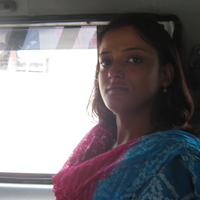Papers by cherise addinsall
A Research Agenda for Sustainable Tourism
ABSTRACT This paper reviews rural development literature in the areas of sustainable livelihoods ... more ABSTRACT This paper reviews rural development literature in the areas of sustainable livelihoods and agroecology. Combining agroecological and sustainable livelihoods approaches enables interdisciplinary research that incorporates principles from sociology, economics, agronomy and ecology. . The outcome of this literature analysis alongside participatory research in Vanuatu and Fiji in 2013/2014 was the development of the integrated Agroecology and Sustainable Rural Livelihoods Framework (ASRLF). . The Pacific Island nations have a well-developed traditional economy, but appropriate rural economic development has been problematic. The ASRLF seeks to function in the local Pacific Island context while also having relevance to sustainable rural development projects elsewhere.

The strategies put forward by the Declaration of the International Forum for Agroecology, Nyeleni... more The strategies put forward by the Declaration of the International Forum for Agroecology, Nyeleni, Mali, 2007, recognise the central role of women in rural development, and align closely with the traditional economy and the political, economic and social foundations of Vanuatu. Therefore, it is recommended that research and development projects operating in this space consider the integration of agroecology and sustainable livelihoods into their project designs through frameworks such as the Agroecology and Sustainable Livelihoods Framework (ASRLF). The ASRLF approaches research through a critical lens that challenges and transforms structures of power in society and sees minority groups (such as women and youth) and their knowledge, values, vision and leadership as critical for moving forward. This chapter demonstrates the application of the ASRLF to a gender livelihoods analysis and the development of a strategy to engage and empower rural farming women.

Asia Pacific Journal of Tourism Research
The neglect and marginalisation of smallholders in economic and development policy contributes to... more The neglect and marginalisation of smallholders in economic and development policy contributes to increasing vulnerability of rural communities. Underinvestment in agriculture, climate change impacts and growing competition for land and water places further pressure on smallholders. In this context, this paper examines the current focus in the South Pacific on strengthening the linkages between tourism and agriculture through agritourism. The paper seeks to merge multiple discourses, by firstly reviewing the development model that is driving tourism and linkages to agriculture in the South Pacific. Secondly, agritourism as it is conceptualised in the tourism literature and thirdly sustainable tourism discourse, to identify economic activities within agritourism that contribute to enhancing smallholders' livelihoods in the South Pacific. An ecologically and socially inclusive model of agritourism is put forward based on principles of sustainable tourism and agroecology-referred to as agroecological tourism. Agroecological tourism strengthens the linkages between tourism and agriculture while fostering sustainability principles. Statement of the research This paper conducts conceptual research focusing on the theory that describes the phenomenon of agritourism. It is written from a critical analyst perspective which seeks 2 to further develop conceptual understanding of agritourism by building on the current literature. It offers a comprehensive framework that can be used to support future empirical research in the field of agritourism. Previous attempts to categorise agritourism have focused on three areas related to place, nature of activity and authenticity. This paper approaches the research from a critical theory paradigm and highlights the lack of considerations surrounding sustainability of the agritourism product.

Smallholder farmers continue to make up the largest proportion of the world's disadvantaged. Rura... more Smallholder farmers continue to make up the largest proportion of the world's disadvantaged. Rural smallholders in the South Pacific are particularly vulnerable to climate change, underinvestment and growing competition for land and resources. Strengthening synergies between agriculture and tourism through avenues such as agritourism has been widely discussed; however, very little research has approached these concepts from a sustainability perspective. This case study of rural Ni-Vanuatu smallholders uses the Agroecology and Sustainable Rural Livelihoods Framework (ASRLF) to explore tourism's potential contribution to improved conservation and food security outcomes. Data collection combined participatory methods such as "storian sessions" with analysis of secondary data. The findings highlight minimal current opportunities for rural Ni-Vanuatu smallholders to gain significantly from the tourism sector in Vanuatu. The shift from traditional gardening systems to cash cropping monocultures is also conflicting with tourism and conservation goals. This paper puts forward agroecological tourism as a strategy for integrating positive conservation, food security and livelihood outcomes for rural smallholders. It defines agroecological tourism as having a primary focus on the interpretation of sustainable traditional agroecosystems which exhibit cultural and heritage significance. Agroecological tourism has potential to support traditional practices, enhance the preservation of cultural knowledge and promote sustainable farming practices.

The neglect and marginalisation of smallholders in economic and development policy contributes to... more The neglect and marginalisation of smallholders in economic and development policy contributes to increasing vulnerability of rural communities. Underinvestment in agriculture, climate change impacts and growing competition for land and water places further pressure on smallholders. In this context, this paper examines the current focus in the South Pacific on strengthening the linkages between tourism and agriculture through agritourism. The paper seeks to merge multiple discourses, by firstly reviewing the development model that is driving tourism and linkages to agriculture in the South Pacific. Secondly, agritourism as it is conceptualised in the tourism literature and thirdly sustainable tourism discourse, to identify economic activities within agritourism that contribute to enhancing smallholders' livelihoods in the South Pacific. An ecologically and socially inclusive model of agritourism is put forward based on principles of sustainable tourism and agroecologyreferred to as agroecological tourism. Agroecological tourism strengthens the linkages between tourism and agriculture while fostering sustainability principles.






Uploads
Papers by cherise addinsall